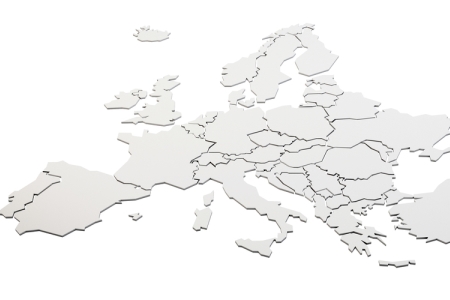The Guild Calls for Enhanced European University Collaboration
Published: 5 August 2016
In light of the UK’s decision to leave the European Union, the members of the Guild of European Research-Intensive Universities - which includes the University of Glasgow – has called for enhanced European university collaboration.
In light of the UK’s decision to leave the European Union, the members of the Guild of European Research-Intensive Universities - which includes the University of Glasgow – have called for enhanced European university collaboration.
In a statement, the Guild said: "Over the past few weeks, evidence has been mounting that the UK’s referendum result on BREXIT has begun to undermine collaborative research through a decline in joint funding applications involving UK partners. Meanwhile, uncertainty around future fee arrangements for EU students and student exchange arrangements are detrimental to student mobility to the UK.
"In short, a core strength of Europe, the free circulation of ideas, of researchers, and of students, is being undermined: this will be to the long-term detriment not just of the UK, but of all of Europe."
The Guild makes three specific demands:
1. The Guild calls on the UK Universities and Science Minister, Jo Johnson, to go beyond his assurances of 28 June, 2016, to:
- guarantee security of funding for all UK scientists funded under Horizon 2020, even after the UK leaves the EU;
- guarantee Erasmus or Erasmus-equivalent funding for UK students beginning their degree programmes during EU membership; and
- guarantee home fee levels for all EU students beginning their study whilst the UK is still a member.
"It is equally important that all EU member states guarantee existing fee levels for all UK students beginning their study during UK membership of the EU. Students and researchers across Europe need more certainty than they currently have," states the Guild.
2. The Guild calls on the national governments in the UK, as well as the EU, to recognize the signal importance of Higher Education and to prioritise the free flow of students, academic staff and scholarly interaction as a key objective of BREXIT negotiations.
"The close collaboration of Europe’s world-leading universities is indispensable for delivering ground-breaking research, the ability to translate this into innovate products where appropriate, and educating tomorrow’s innovators and leaders. The European Union has succeeded in creating highly effective cross-border funding mechanisms for collaborative research, innovation and mobility: to compromise these as a result of BREXIT would cause irreparable damage to the knowledge societies of Europe," it adds.
3. At this time of uncertainty, the Guild urges European universities and their staff and students to underline their important role through concrete action. The Guild will set an example of its own by committing to increase the level of student mobility amongst its members. It will create a series of collaborative research workshops for the coming academic year; and the Guild will support growing the number of collaborative funding bids over the next three years, involving the best researchers of any of its institutions.
"Now is a time for European universities to lead by example. We call on universities, student societies, and learned societies – within the UK and beyond – to join us in enhancing the mobility of students across Europe, and increasing research collaboration wherever possible, in the face of current political uncertainties. And we call on governments, as well as the European Commission, to support us in this endeavor," it adds.
First published: 5 August 2016
<< August

